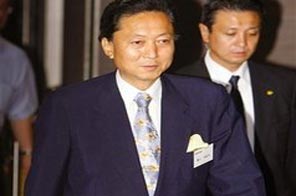Japan's PM, Cabinet resign
TOKYO: Japan's Prime Minister Taro Aso and his Cabinet resigned Wednesday to pave the way for parliament to elect Yukio Hatoyama as the country's next leader.
The top officials resigned after holding their final Cabinet meeting early Wednesday morning, the prime minister's office said.
The resignations were a formality so that parliament's lower house, now controlled by Hatoyama's party following their landslide election victory last month, can vote him in as Japan's prime minister. Hatoyama's victory ends more than 50 years of nearly unbroken rule by Aso's Liberal Democratic Party.
Hatoyama, head of the left-of-center Democratic Party of Japan, has promised to shake up Japan's political system, cutting government waste, reinvigorating the world's second-largest economy and focusing policies on consumers, not big business.
Parliament was to convene in a special session later in the day to formally select the new prime minister. Hatoyama's party controls 308 of the 480 seats in the body's lower chamber, which selects the prime minister, virtually assuring him of the post.
"I am excited by the prospect of changing history," Hatoyama said early Wednesday. "I also feel the weight of the responsibility of making history."
He will have a tough job ahead.
His first task would be to name a Cabinet. Media reports said he had already chosen Katsuya Okada as his foreign minister and Hirohisa Fujii as his finance minister. Though Okada has never held a Cabinet post, Fujii was finance minister under a coalition government in 1993-94, the only time in its 55-year history that the Liberal Democrats had previously been ousted from power.
Hatoyama has a limited pool of seasoned politicians to choose from. His party, created a decade ago, has never held power, and nearly half of the Democrats' members of the lower house will be serving in their first terms in parliament.
Though largely untested in power, Hatoyama and his party face huge tasks that they must deal with quickly.
Japan's economy is in its worst slump since World War II, unemployment is at a record high and wages are falling. The rapid aging of its population also threatens to be a drag on public coffers as the number of taxpayers decreases and pension responsibilities swell.
"The economy is in very difficult shape, so we must work hard to improve it," said Mieko Tanaka, one of the Democratic Party's new lawmakers.
Hatoyama will also be tested quickly on the diplomatic front. He has said he wants to attend a meeting in the United Nations in New York next week and possibly meet with President Barack Obama.
Hatoyama has said he wants to build a foreign policy that will put Tokyo on a more equal footing with Washington and force closer ties with Japan's Asian neighbors, particularly China.
Some members of Hatoyama's party have said they want to overhaul the U.S.-Japan security alliance under which 50,000 troops are deployed throughout Japan. That idea has met with strong opposition from Washington, although plans are already underway for 8,000 Marines to be relocated from the southern island of Okinawa to the U.S. territory of Guam.






